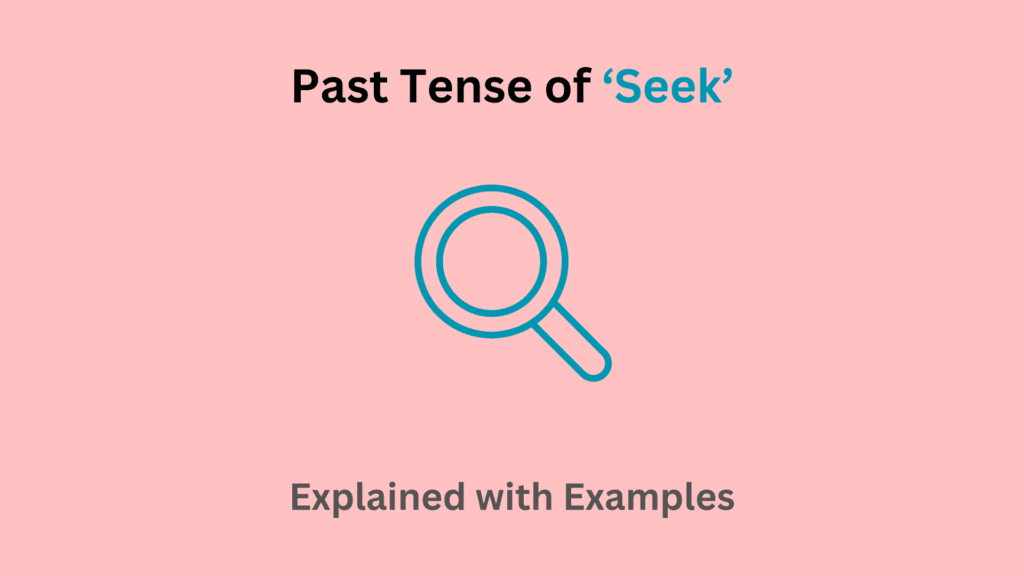Ever wondered how we talk about freaking out in the past? Like, is it “I panic” or “I panicked”? It’s one of those little language puzzles that can get you thinking. Let’s explore this question and figure out what’s up with the past tense of panic.
What does the Word “Panic” Mean?
“Panic” as a Noun:
When “panic” is a noun, it refers to a strong feeling of fear or worry that comes on suddenly. It’s like when something scary happens, and people feel like they can’t control their emotions. For example, there might be panic in a crowded place if there’s a sudden loud noise.
Additionally, in a botanical context, “panic” can also refer to a type of grass within the genus Panicum, commonly known as “panic grass.” Many species of Panicum produce edible grain, and this grain itself is sometimes referred to simply as “panic.”
“Panic” as an Adjective:
“Panicked” as an adjective describes someone who is feeling or acting really scared and worried. It’s like when someone sees another person looking really frantic or doing things in a hurry because they’re so afraid. For instance, someone might have a panicked look on their face if they think they’ve lost something important.
“Panic” as a Verb:
When “panic” is a verb, it means to suddenly feel very scared or to make someone else feel scared. It’s like when someone gets this sudden rush of fear and feels like they can’t think clearly. For example, someone might panic if they see a big dog running towards them or if someone startles them by jumping out from behind a door.
Past Tense of Panic
In English, when we talk about things that happened in the past, we often change the form of verbs. For regular verbs, we usually add “-ed” to the base form to show past tense. However, “panic” is a regular verb. The past tense of “panic” is “panicked.” It follows the usual rule of adding “-ed” to form the past tense. We use “panicked” to show that someone felt scared in the past.
The extra “k” in “panicked” helps maintain the pronunciation of the word, ensuring it sounds correct when spoken aloud. Without the “k,” “paniced” might be mispronounced as “pa-ni-ced” instead of the correct “pan-icked.” So, adding the “k” helps maintain consistency and clarity in both written and spoken English.
Regarding its transitivity, “panic” can function both transitively and intransitively depending on the context. For example, “He panicked the crowd” (transitive) versus “She panicked at the sight of the spider” (intransitive).
You will like: What is the past tense of swing? Is it swing, swang or swung?
How to pronounce “Panic” and “Panicked”
The word “panic” is pronounced as /ˈpænɪk/, with the stress on the first syllable. It rhymes with “manic” or “titanic.”
The past tense form “panicked” is pronounced as /ˈpænɪkt/, also with the stress on the first syllable. It rhymes with “licked” or “picked.”
The Simple Verb Tense Table
| Tense | Example | Description |
|---|---|---|
| Present | I panic | Action happening right now |
| Present Continuous | I am panicking | Action happening right now and continuing |
| Present Perfect | I have panicked | Action completed recently with relevance to now |
| Present Perfect Continuous | I have been panicking | Action started in the past and continuing to now |
| Past | I panicked | Action completed in the past |
| Past Continuous | I was panicking | Action ongoing in the past |
| Past Perfect | I had panicked | Action completed before another past action |
| Past Perfect Continuous | I had been panicking | Action ongoing until another past action |
| Future | I will panic | Action to be completed in the future |
| Future Continuous | I will be panicking | Action ongoing in the future |
| Future Perfect | I will have panicked | Action completed before a future reference point |
| Future Perfect Continuous | I will have been panicking | Action ongoing until a future reference point |
You will like: What’s the Past Tense of Troubleshoot?
Usage of “Panic” and “Panicked” in Everyday Conversations
Panic:
- I experienced a moment of panic when I realized I left my wallet at home.
- There was a sense of panic in her voice when she called for help.
- The news of the impending storm caused widespread panic among the residents.
- In moments of panic, it’s important to stay calm and think rationally.
- He felt a surge of panic wash over him as he realized he was lost in the unfamiliar neighborhood.
- The sudden drop in stock prices led to a panic among investors.
- Don’t give in to panic; we’ll find a solution to this problem together.
Panicked:
- She panicked when she saw the deadline approaching and hadn’t finished her assignment.
- He panicked and dropped his phone when he heard the loud crash behind him.
- The dog panicked and ran away when it heard the sound of fireworks.
- I panicked for a moment when I couldn’t find my passport before the flight.
- The students panicked when they realized they hadn’t studied enough for the exam.
- She panicked and called for help when she saw smoke coming from the kitchen.
- The driver panicked when he saw the car swerving into his lane and braked suddenly.
You will like: What’s the past tense of fall down?
Synonyms of Panic
- Alarm
- Distress
- Frenzy
- Hysteria
- Terror
- Anxiety
- Dread
- Fear
- Consternation
- Turmoil
Conclusion
So, to sum it up, knowing about “panic” and “panicked” helps us talk about feeling really scared or nervous. “Panic” is when you suddenly get scared, while “panicked” is talking about when you were scared before. Understanding these words helps us express our feelings better and communicate more clearly with others.
Sources
Merriam-Webster (Panic Definition & Meaning), Wikipedia (Panic) and Thesaurus.com (54 Synonyms & Antonyms for PANIC).








